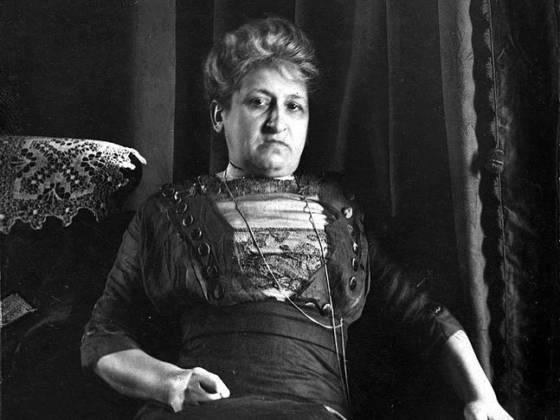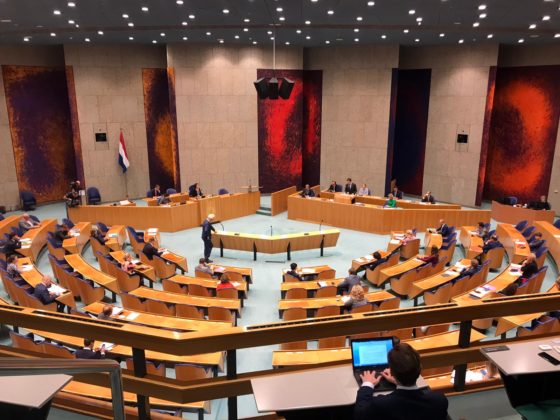“I’m absolutely the person buying kruidnoten in July”

Sophie H Turner is originally from Melbourne and spent several years in Washington DC before moving to the Netherlands. She now lives in Amsterdam where she leads Empowered By Us, a rare disease inclusion initiative.
How did you end up in the Netherlands?
I’m originally from Melbourne, but I also lived in the US where I worked at the Australian Embassy in Washington DC. There definitely wasn’t a plan to come here. It was more of a leap.
I moved to the Netherlands for love, but also for possibility. After working in diplomacy and global strategy, I wanted a base where I could build something new and challenge systems to be more inclusive, humane, and just.
It all happened right at the beginning of the pandemic in 2020. Flights were being cancelled, borders were closing, and I wasn’t sure I’d even make it over. Australia had some of the toughest lockdowns in the world, and my visa in the US was expiring. The Australian government was saying, “If you don’t have accommodation in the next six months, you’ll have to return. We’re closing the borders.”
My partner and I had been long distance for a while and we’d talked about living somewhere together. The way it all happened really turned it into a leap. Looking back, I’d say the universe conspired to make it happen.
How do you describe yourself – an expat, lovepat, immigrant, international?
I don’t really think I fit into any of those labels, not that there’s anything wrong with them. I see myself more as a systems challenger with a suitcase.
I live with a skeletal condition called achondroplasia and I’ve used that lived experience to rethink how policies are made, who gets included, and what true inclusion really looks like.
So maybe I’m not an expat or an immigrant. Maybe I’m a catalyst. The Netherlands is where I’ve been able to root that work and grow its reach.
How long do you plan to stay?
With the work I’m doing now, as long as I’m needed, and probably longer.
Through my organisation Empowered By Us, I’ve been part of conversations with parliament and public health agencies that show things are starting to shift. We’re reframing how we think about access, inclusion, and even rare diseases and their role in health systems.
I want to be part of seeing those changes through, not just helping to start them.
I like to think I’ve built more than a career here. I’ve built a mission. This isn’t a box I’m ticking or a job I’m doing to pay a mortgage. I’m here to deliver something bigger. You can’t really put a time frame on that. However long it takes.
Do you speak Dutch and how did you learn?
I’m not fluent yet, but I’m getting there.
I know how important it is, not just for integration but for impact. If I want to connect with policymakers, shift narratives, and advocate effectively, I need to literally speak their language. That’s what drives me. I want to be understood in the rooms where decisions are made.
When I first arrived, the Amsterdam gemeente was offering free Dutch courses. I don’t know if they still do, but I jumped on that opportunity. I also practice a lot with my mother-in-law, since English isn’t her first language. She’s helped me build my confidence, especially conversationally.
What’s your favourite Dutch thing?
Honestly? The directness. It’s like a shortcut to the truth.
In Australia, we’re warm and friendly, but often a bit roundabout. In the Netherlands, if something’s broken, people say so. And then they fix it. That kind of pragmatism has helped me push for real change here.
Also: kruidnoten. I don’t care if it’s not December. I’m absolutely the person buying them in July and pretending to be surprised when I ‘find’ them in the store.
How Dutch have you become?
I still don’t cycle as much as a typical Dutch person and I’ll never get used to scheduling coffee four weeks in advance. But I’ve definitely mastered the art of directness. I speak my mind, drink more koffie verkeerd than I probably should, and I care deeply about public systems.
At the same time, I’ve kept my Australian edge. I still believe that change is possible, even if you haven’t been invited to the table.

Which three Dutch people (dead or alive) would you most like to meet?
Aletta Jacobs because she shattered ceilings before most women were even allowed in the building. She did it with purpose, strategy, and care. Her legacy reminds me that structural change is possible when you combine persistence with vision.
Herman Tjeenk Willink, a former vice president of the Council of State and a longtime advisor to governments. He’s spent his entire career insisting that democracy only works when people can trust the systems that serve them. I’d love to talk with him about how we rebuild that kind of trust, especially for people who’ve never truly had it. That question feels urgent not just here, but globally.
Wieke Paulusma and Julian Bushoff. I know that’s technically a fourth, but they’re both Dutch MPs doing important work to make healthcare fairer and more inclusive. I’ve crossed paths with Wieke in the Tweede Kamer (lower house of parliament), but I’d love to sit down over coffee with both of them. Not to talk politics, but to talk about what real, human-centred change could look like from inside the system.
What’s your top tourist tip?
This might sound a bit nerdy, but I love visiting the Tweede Kamer during a debate. You can register online and sit in the public balcony.

Even if you don’t speak Dutch, it’s worth it. You’ll get to see how democracy really works here: principled, imperfect, and very human. You might even hear someone speaking up for communities you’ve never heard mentioned in a guidebook.
And after that? Go to a Surinamese deli and order the bakbanaan. Just trust me.
Tell us something surprising you’ve found out about the Netherlands.
For such a progressive country, the Netherlands can still be quietly conservative, especially around disability and inclusion.
But that’s also where the opportunity lies. When the Dutch decide something needs to change, they don’t hesitate. That gives me hope. It’s what drives the work I do.
If you had just 24 hours left in the Netherlands, what would you do?
I’d walk through Amsterdam at sunrise when the city is still quiet. No tourists, no crowds, just bright, clear peace. It would be a kind of reminiscing tour. I’d pass the places where I’ve had conversations, opened doors, and slowly helped shift how the Netherlands thinks about inclusion, even in quiet ways.
I’d stop at a terrace, order patatje oorlog, and just watch the world go by. And I’d call the people who believed in me before I had the words in Dutch to explain why my work mattered. I’d end the day writing the speech I hope to give in Parliament one day. Not as a farewell, but as a promise.
Sophie H Turner was talking to Brandon Hartley.
Thank you for donating to DutchNews.nl.
We could not provide the Dutch News service, and keep it free of charge, without the generous support of our readers. Your donations allow us to report on issues you tell us matter, and provide you with a summary of the most important Dutch news each day.
Make a donation